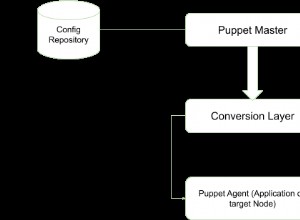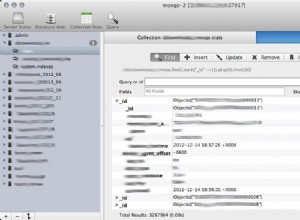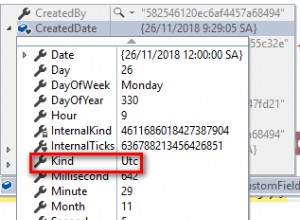Você ainda deve usar
async mas você precisa de async.waterfall por isso. Aqui está o que você precisa considerar:Um método principal para chamar seu
async função:var getInformation = function(){
async.waterfall([
//Array of your functions in order, we will be back here later
], function (err) {
if(err){
console.log(err);
}else{
console.log('Everything OK!');
}
);
}
Então você precisa que suas funções sejam
async amigável, isso significa que você deve usar retornos de chamada e fornecer seus dados de uma função para outra. Algo assim:function findUser(callback){
//Do something
if('Everything OK'){
callback(err, yourData); //err should be null if everything is OK and yourData should be the data that you wanna use in your next function. e.g. schoolId
}else{
callback(err); //Something was wrong, "err" should have something different to null
}
}
function findSchool(callback, schoolId){ //Note that we receive the parameter schoolId here but not in the first function
//Do something
if('Everything OK'){
callback(err, yourData); //err should be null if everything is OK and yourData should be the data that you wanna use in your next function. e.g. schoolName
}else{
callback(err); //Something was wrong, "err" should have something different to null
}
}
function findStudents(callback, schoolName){
//Do something
if('Everything OK'){
callback(err); //err should be null if everything is OK if this is the last function maybe we don't need to send back more data from here
}else{
callback(err); //Something was wrong, "err" should have something different to null
}
}
Então você deve chamar suas funções em seu método principal:
var getInformation = function(){
async.waterfall([
findUser,
findSchool,
findStudents
//Note that there is no need to tell the functions the parameters they are sending or receiving here
], function (err) {
if(err){
console.log(err);
}else{
console.log('Everything OK!');
}
);
}
E é isso, você tem 3 funções que devem ser executadas uma após a outra e nenhum callback hell é necessário.




